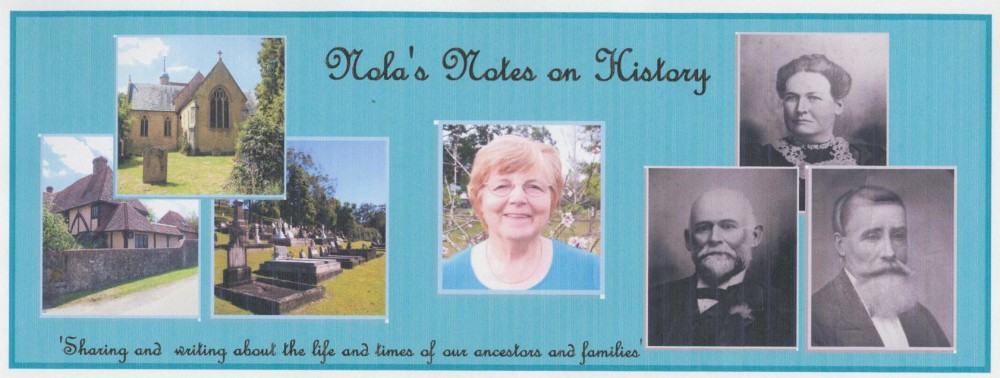When we are writing our family’s history we need not only the specific facts of their lives but also to put them into the context, of the time and place. That is when, where and how they lived.
However, “All history is conjecture. All of it. It is the height of folly and arrogance for anyone to say that he or she knows definitely what happened in the past. We piece together the story as best we can, with the shreds of evidence that exist. When we are very lucky the pieces come together to form a beautiful and cohesive collage”….[from The Book of Love, Kathleen McGowan]
I am interested specifically in the Second Fleet story, because one of my husband’s ancestors, Harriet Hodgetts, is believed to have arrived in Australia, as a free woman, on the Second Fleet.
When we are writing about specific events, such as the “Second Fleet”, we need to dig deep into a whole range of records. We have to study them carefully if we are to get the most out of them.
The following blogs are my interpretation of the documents and information I have found, and my version of what happened all those years ago, and why. How close it is to the ‘real thing’ I do not know, but believe it is a possible explanation of the events of that time.
The only surviving personal record of the Second Fleet is part of a Journal written by Elizabeth McArthur, the wife of John McArthur, a Lieutenant in the Marines. They embarked on the ‘Neptune’ in London. It is a personal record of some of her experiences, and what she thought about some of the things, going on about her. It only covers a few weeks of the voyage, on board the Neptune, not the whole seven months at sea. Much has been written and inferred by these few pages. Many historians have studied them, and written whole books on their interpretation of that collection of remarks and musings.
For the First Fleet there are more than twenty accounts of the voyage out, and indeed even the return voyage. It is hard to believe Elizabeth McArthur was the only person recording that voyage. True, a few letters written about the arrival of the Second Fleet in Sydney have survived, but no other records of personal experiences on board the ship itself. It was a popular thing for, particularly educated men to record their experiences, and publish them in book form, usually in their lifetime. There also would have been the Captain’s Log, the Surgeon Superintendent’s and the Naval Agents reports, of the day to day running of each of the ships in the Fleet. However, these have not survived, possibly destroyed to avoid blame and recrimination, after such a disastrous voyage.
I have been studying the Elizabeth McArthur story, so I can better understand our Harriet Hodgetts. She had been born in the same year as Elizabeth, and faced many of the same challenges, as their parallel lives stretched well into the 19th Century. They both died in Australia in the same year. There are very few records that even mention Harriet ‘Hodgetts’ by name, and absolutely none in the way of family stories, letters, diaries, or journals, telling of her thoughts, attitudes, and her victories and sorrows over the 83 years, of her long and eventful life.
As I have studied the life of Elizabeth McArthur and this specific part of our history, I see a different interpretation of what was going on around Elizabeth, then is recorded in her Journal. Her reaction to things she had no former experience of. The things she was not a witness to, but only heard second or third hand. Finally, of things, that were specifically kept from her, particularly by her husband, John McArthur.
Let me say at the outset I have great admiration for Elizabeth McArthur and Harriet Hodgetts, and as women, how they met the day to day challenges, not only of the voyage but in the infant colony at the edge of the known world.

View of Sydney Cove-1792
To really understand Elizabeth McArthur and Harriet Hodgetts, I believe I needed to go right back to the beginning and study their ancestors and families. I wanted to find not only where and how they lived, but how they may have influenced the women’s outlook on life. I wanted to find some possible explanations, not only for some of their decisions and indomitable faith but how they managed to live in a male-dominated society and world, so far away from their ‘roots’, with no family support.
Who was the real Elizabeth McArthur? Who was the real Harriet Hodgetts?


How wonderful and clever -but unsurprising- that you discovered these parallels. Both stories are intriguing, I’m fascinated by their lives and in awe of their journeys. I like your approach and I’m pleased that you have taken on the rendering of their stories.
Thanks for reading the blogs and commenting. Sometimes I think it is OK to keep putting this project on the back-burner, especially when I get busy. Thanks for the reality check too, as time is marching on so quickly. I do need to commit to finishing off many of my half-finished projects. My family are not going to thank me for boxes of notes and documents which they know nothing about.